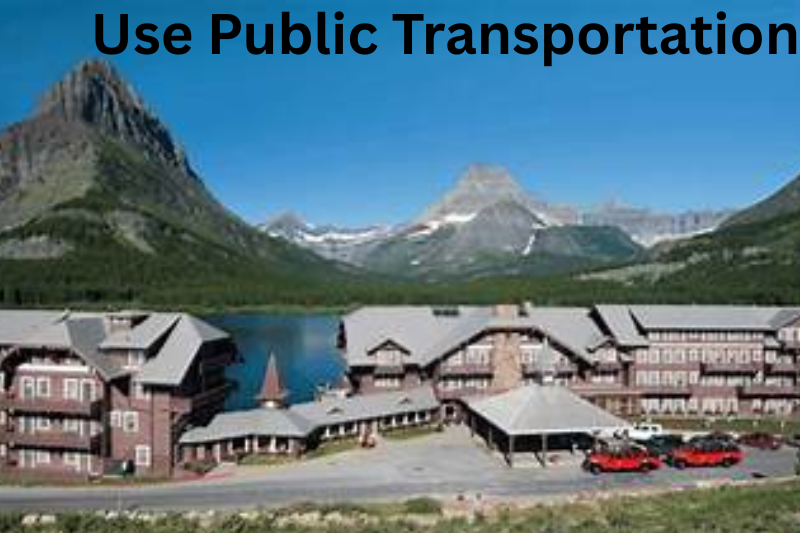Traveling is one of the most enriching experiences in life. Whether you’re dreaming of a beach getaway, a city adventure, or a quiet mountain escape, exploring the world opens your mind and creates memories that last forever. However, the biggest obstacle for many people is cost. Flights, hotels, food, and attractions can add up faster than expected.
The good news is that traveling doesn’t have to be a luxury reserved for the rich. With careful planning and smart choices, anyone can see the world on a budget. In this guide, we’ll go through practical money saving travel tips, explore the benefits and drawbacks of each, and show you how to make your adventures affordable without sacrificing the experience.
1. Plan Early and Stay Flexible

How It Helps
Planning ahead can save you hundreds of dollars. Airlines and hotels often release cheaper rates months before peak travel times. If you book early, you’re likely to get the best prices before demand drives them up.
Flexibility is equally valuable. Traveling on weekdays, during off-peak hours, or in shoulder seasons (the time just before or after the high season) can dramatically reduce costs.
Benefits
- Early booking means more choices and lower prices.
- Flexible travelers can take advantage of flash sales and off-season discounts.
- Shoulder season travel offers smaller crowds and better availability.
Drawbacks
- Requires advance planning and commitment.
- Changing travel dates can be harder if you have a fixed work schedule.
- Early bookings might be less flexible with cancellation policies.
2. Use Flight Comparison Tools and Alerts
How It Helps
Airfare can fluctuate daily. Instead of checking airline websites one by one, use tools like Skyscanner, Google Flights, or Kayak. These platforms compare prices across multiple airlines and allow you to set alerts when prices drop.
Benefits
- Saves time and effort in searching for deals.
- Helps you find hidden discounts or cheaper routes.
- Many tools allow you to explore “cheapest destinations” from your departure city.
Drawbacks
- Some budget airlines may not appear on all comparison sites.
- Lowest fares may come with strict conditions (no refunds, no changes).
- Prices can still rise suddenly if you delay booking.
3. Travel Light to Avoid Fees
How It Helps
Airlines increasingly charge for checked baggage, especially low-cost carriers. Traveling with just a carry-on not only saves money but also time at the airport.
Benefits
- No checked bag fees.
- Faster airport experience (no baggage claim wait).
- Easier mobility during multi-destination trips.
Drawbacks
- Limited packing space.
- Difficult for long trips or colder destinations that require bulky clothing.
- Strict airline weight and size restrictions can be stressful.
4. Choose Affordable Accommodation Options
How It Helps
Hotels are comfortable, but they’re not always the best value. Consider hostels, guesthouses, Airbnbs, or vacation rentals. These can be significantly cheaper and often include access to kitchens, which helps you save on food.
Benefits
- Lower nightly rates compared to hotels.
- Access to shared amenities like kitchens or laundry.
- More opportunities to meet locals or fellow travelers.
Drawbacks
- Less privacy in shared hostels.
- Quality and safety can vary depending on location and host.
- Some vacation rentals charge hidden cleaning or service fees.
5. Eat Like a Local
How It Helps
Dining at tourist-oriented restaurants is one of the quickest ways to drain your travel budget. Instead, explore local eateries, food markets, and street vendors. You’ll often find authentic, delicious meals for a fraction of the price.
If possible, choose accommodation with a small kitchen so you can prepare simple meals like breakfast or snacks.
Benefits
- Saves significant money over a multi-day trip.
- Offers a genuine taste of local culture.
- Encourages exploration beyond tourist areas.
Drawbacks
- Some local street foods may not meet your dietary or hygiene standards.
- Cooking takes time and may not be convenient for short stays.
- Limited food options in remote areas.
You may also like to read these posts:
Mountain Hiking Adventure Trips: A Complete Guide to Your Next Great Outdoor Adventure
Adventure Travel for Couples: Strengthen Your Bond Through Shared Adventures
Extreme Adventure Trips Guide: Dare to Live Beyond the Ordinary
Outdoor Adventure Travel Plans: A Complete Guide to Exploring the Great Outdoors
6. Use Public Transportation

How It Helps
Public transport systems—buses, trams, and subways—are affordable, efficient, and often the best way to experience a city like a local. Many destinations offer day or week passes for unlimited rides.
Benefits
- Substantially cheaper than taxis or car rentals.
- Reliable and usually well-connected to tourist areas.
- Environmentally friendly and culturally immersive.
Drawbacks
- May be confusing for first-time visitors or non-native speakers.
- Can be crowded, especially during rush hours.
- Limited service in rural or remote destinations.
7. Explore Free and Low-Cost Attractions
How It Helps
You don’t need to spend a lot to enjoy a destination. Many cities offer free walking tours, public parks, historic sites, and museum days with no entry fee.
Benefits
- Saves money while enriching your experience.
- Encourages you to discover less-commercial parts of a destination.
- Great opportunity for photography and relaxation.
Drawbacks
- Free attractions may be more crowded.
- Limited availability (some are only free on specific days).
- May lack the convenience or luxury of paid tours.
8. Use Travel Rewards and Loyalty Programs
How It Helps
If you travel often, loyalty programs from airlines, hotels, and credit cards can help you accumulate points or miles that you can redeem for free flights, hotel stays, or upgrades.
Benefits
- Rewards accumulate over time and can cover major expenses.
- Access to exclusive offers, upgrades, or airport lounges.
- Encourages consistent travel planning.
Drawbacks
- Requires consistent use of specific brands or credit cards.
- Some programs have expiration dates for points.
- High-interest credit cards can outweigh the benefits if not managed wisely.
9. Avoid Tourist Traps
How It Helps
Popular tourist areas often inflate prices for food, souvenirs, and attractions. Venturing just a few blocks away can lead to more authentic and affordable experiences.
Benefits
- Saves money while offering genuine local experiences.
- Avoids overcrowded spots.
- Often provides better quality and service at lower costs.
Drawbacks
- May require more research and navigation.
- Not all off-the-beaten-path places are safe or easily accessible.
- Some local areas might not have English-speaking staff.
10. Create and Stick to a Travel Budget
How It Helps
Having a clear budget helps you control spending and avoid surprises. Use mobile apps like Trail Wallet, TravelSpend, or Mint to track expenses in real time.
Benefits
- Helps you stay accountable and organized.
- Reduces post-trip financial stress.
- Allows you to identify and adjust spending priorities.
Drawbacks
- Requires discipline and constant tracking.
- Unexpected expenses (emergencies, currency changes) can affect the plan.
- Might limit spontaneous experiences.
The Bigger Picture: Why Saving Money While Traveling Matters
Saving money while traveling doesn’t just protect your wallet—it enhances your overall travel experience. When you’re financially comfortable, you can relax, explore more, and enjoy your trip without worrying about overspending.
Moreover, smart budgeting allows you to travel more often. Instead of spending your entire savings on one expensive trip, you could enjoy multiple affordable adventures throughout the year.
Conclusion
Traveling on a budget doesn’t mean compromising on quality or experiences. These money saving travel tips are about making smarter choices—finding better deals, being flexible, and embracing local life.
Every dollar saved on unnecessary expenses is a dollar you can spend on something truly meaningful—an extra day of exploration, a cultural experience, or your next adventure.
With careful planning, awareness, and a bit of creativity, you can travel further, stay longer, and experience more—without letting finances hold you back.
FAQs
1. What are the best ways to save money while traveling?
The best ways to save money while traveling include booking flights early, being flexible with travel dates, using public transportation, staying in affordable accommodations like hostels or Airbnbs, and eating at local restaurants instead of tourist spots. You can also use flight comparison tools and travel reward programs to find discounts and earn free perks.
2. Is it really cheaper to book flights early?
Yes, in most cases booking flights several months in advance can help you find lower prices. Airlines often release their cheapest seats early. However, if you’re flexible, you can also take advantage of last-minute deals or flash sales. The key is to compare prices regularly and set up fare alerts.
3. What is the cheapest way to find accommodation when traveling?
The cheapest options are usually hostels, guesthouses, and vacation rentals. If you’re open to meeting new people, consider couchsurfing or house-sitting—both can offer free stays. Booking directly with the host or using trusted local platforms can sometimes save you money compared to major booking sites.
4. How can I save money on food while traveling?
To save money on meals, eat where locals eat—street food stalls, local diners, or neighborhood markets. Avoid tourist-heavy restaurants near major attractions. Also, choose accommodations with kitchen facilities so you can prepare some of your meals. This simple habit can save a significant amount over a long trip.
5. Is public transportation safe and reliable for tourists?
In most cities, yes. Public transportation is affordable, efficient, and safe for travelers. It’s also a great way to experience local life. Just research the system in advance, keep your belongings secure, and avoid traveling late at night in unfamiliar areas.



